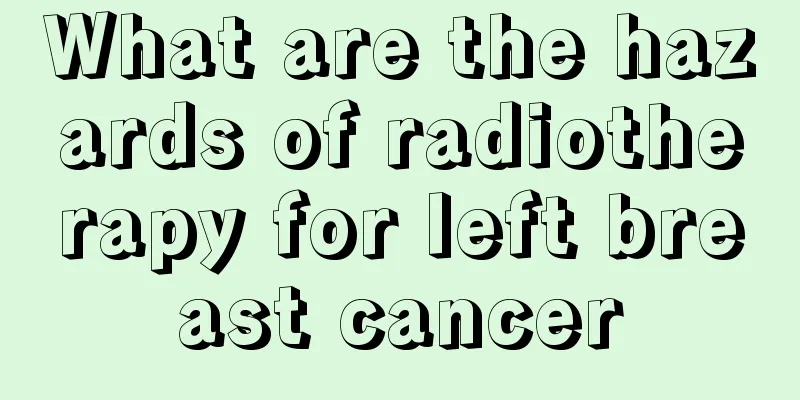How long does it take for alcohol to be broken down in the human body?

|
Why can some people drink a lot when drunk while others can only drink very little? This is related to personal physique. Some people have strong absorption ability while others have weak absorption ability. After getting drunk, the alcohol needs to be broken down and excreted before sobering up. But how long does it take for alcohol to be broken down in the human body? The decomposition time also varies from person to person as everyone's physical fitness is different. Generally speaking, it can range from ten hours to twenty hours, but the longer the decomposition time, the more harmful it is to the body. A normal person needs 10 to 20 hours. Ethanol (structural formula: CH3CH2OH) is a type of alcohol and the main component of wine, so it is also called alcohol. In some places, it is commonly known as liquor. The chemical formula can also be written as C2H5OH or EtOH, where Et represents ethyl. Ethanol is flammable and is a commonly used fuel, solvent and disinfectant. It is also used to make other compounds. Industrial alcohol contains a small amount of methanol, and medical alcohol is ethanol with a concentration of about 75%. Alcohol is a colorless, transparent, volatile, flammable, and non-conductive liquid. It has the smell of wine and a stimulating spicy taste, slightly sweet. The scientific name is ethanol, and the molecular formula is C2H6O (alcohol combustion C2H5OH+3O2=2CO2+3H2O). Because its chemical formula contains hydroxyl groups, it is called ethanol, with a specific gravity of 0.7893 (20/4°). After being absorbed, alcohol enters the blood system and dissolves into the water in the blood, and the blood carries the alcohol around the body. The alcohol in the blood then moves into and dissolves in the water within every tissue in the body (except fat tissue, because alcohol cannot dissolve in fat). Once inside the tissues, alcohol begins to exert its effects on the body. The effects observed depend directly on the blood alcohol concentration (BAC), which is related to the amount of alcohol consumed. Blood alcohol concentration (BAC) rises significantly within 20 minutes of drinking. After alcohol is absorbed into the blood system, it is excreted from the body in three ways: The kidneys excrete 5% of alcohol through urine. 5% alcohol is exhaled from the lungs and can be detected by a breathalyser. The liver chemically breaks down the remaining alcohol into acetic acid. A good rule of thumb is that the average person can digest about 0.5 ounces (15 ml) of alcohol per hour, so it would take about an hour to digest the alcohol in a 12-ounce (355 ml) can of beer. Blood alcohol concentration (BAC) increases when the body absorbs alcohol faster than it can eliminate it. Because the body can only eliminate a certain amount of alcohol per hour, drinking multiple drinks in an hour will increase your blood alcohol concentration (BAC) more than drinking one drink in one or more hours. The active ingredient in wine is alcohol, scientifically known as ethanol. Ethanol enters the digestive tract and is absorbed into the blood primarily in the stomach. The ethanol concentration in the blood reaches its peak one hour after drinking. A lot of ethanol enters the brain through the blood-brain barrier, affecting the brain's normal consciousness. This is the reason for dizziness after drinking. After about an hour and a half, about 90% of the ethanol is absorbed by the body, of which 20% is in the pulmonary circulation and excreted from the body through pulmonary breathing; while 80% is broken down and excreted from the body through the liver. This decomposition and transformation is very complex. There are many kinds of enzymes in the liver, some of which have the function of breaking down ethanol, breaking down the ethanol that enters the blood into carbon dioxide and water. This conversion takes 2-4 hours, and the speed of sobering up depends on the activity and quantity of various enzymes. The greater the activity of the enzyme, the faster the speed, and vice versa. According to an experiment conducted by a professor at Shinshu University in Japan, the alcohol concentration will gradually decrease after about 90 minutes of drinking, and will disappear completely after four hours. The alcohol concentration in the blood will become zero around 9 to 12 hours. |
<<: Is it normal for babies and young children to fart a lot?
>>: Reasons for pain in the right shoulder blade joint
Recommend
What are the functions and effects of various gemstones?
Jewelry is a common item in daily life. Many peop...
What can be detected by color Doppler ultrasound of lymph nodes
The human lymphatic system is the human immune sy...
Four treatments for gastric cancer, how many do you know?
Gastric cancer is a malignant tumor with a very h...
How to discharge milk from accessory breast
Many female friends have accessory breasts, which...
What are the benefits of wearing cinnabar bracelets
Cinnabar bracelets are also a relatively common t...
Can potato chips eliminate chloasma
Speaking of potatoes, everyone is familiar with t...
What are the causes of gastric cancer and intestinal cancer
What are the causes of stomach cancer and colon c...
What are the preventive measures for thyroid cancer
What are the preventive measures for thyroid canc...
How to remove paint smell, you must know
Nowadays, most new house decorations require the ...
How long can one usually live with advanced liver cancer
The 5-year survival rate for advanced liver cance...
How effective is it to blow your belly button with a hair dryer to lose weight
With the improvement of people's living stand...
What are the early symptoms of nasopharyngeal carcinoma
What are the early symptoms of nasopharyngeal can...
Symptoms and treatment of gastrointestinal indigestion
Children are prone to gastrointestinal indigestio...
What is the detailed method of applying tomato juice and honey on the face
Tomatoes are also commonly known as tomatoes. A f...
How much milk should you drink a day to help you grow taller?
Teenagers who are in the growth stage are in the ...









